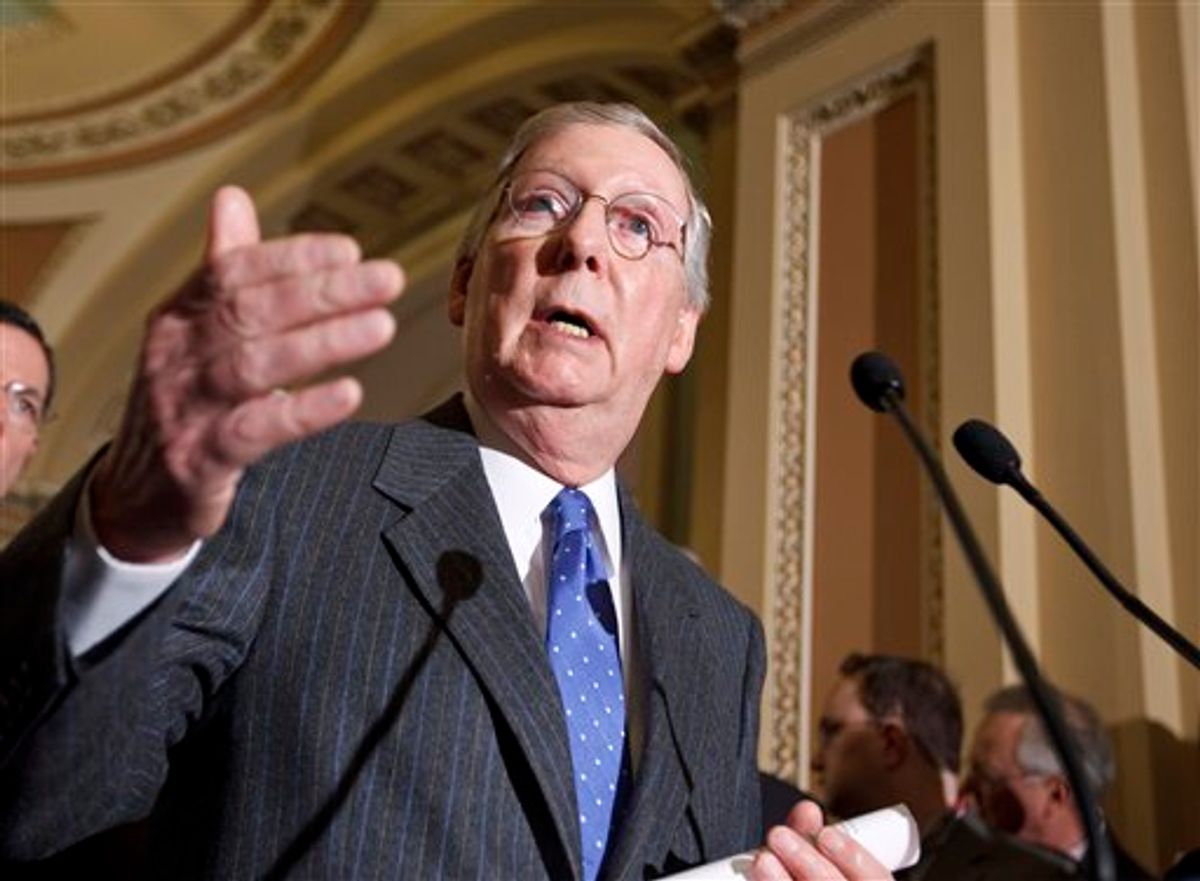 Two years ago, when S&P downgraded the credit rating of the United States, they didn’t cite our debt or our spending. Instead, they knocked our political system, and in particular, the dysfunction and institutional creakiness that made a debt-ceiling stand-off possible: “The downgrade reflects our view that the effectiveness, stability, and predictability of American policymaking and political institutions have weakened at a time of ongoing fiscal and economic challenge,” said the company in a statement released that summer.
Two years ago, when S&P downgraded the credit rating of the United States, they didn’t cite our debt or our spending. Instead, they knocked our political system, and in particular, the dysfunction and institutional creakiness that made a debt-ceiling stand-off possible: “The downgrade reflects our view that the effectiveness, stability, and predictability of American policymaking and political institutions have weakened at a time of ongoing fiscal and economic challenge,” said the company in a statement released that summer.
We’re just two weeks into 2013, but it’s already clear that the “effectiveness, stability, and predictability” of our institutions is in question. First, we came uncomfortably close to implementing a round of ruinous austerity that no one—even the deficit hawks—wanted, and now, we’re again fighting the GOP over raising the debt ceiling, and fulfilling our financial obligations to the world.
Republicans insist that we can hit the ceiling and—because the federal government will continue to take in money—pay our debts without any damage to the economy. “We should pass a bill out of the House saying there will be certain priorities attached to certain things, namely payment of debt services and payment of our military,” said Pennsylvania Senator Pat Toomey last week, during an interview on Laura Ingraham’s radio show.
Putting aside the technical problems with this scheme—prioritization won’t work if debt service obligations exceed revenues on any given day—there’s the simple fact that this just underscores the extent to which the United States has devolved to banana-republic status. When the richest country in the world can’t figure out a way to pay its debts—even as investors are eager to purchase Treasury bonds—it’s a problem.
To wit, ratings agencies are threatening, again, to downgrade the United States if we hit our debt ceiling, regardless of whether we’re able to resolve the problem or pay our bondholders. Why? Because we will have proven, again, that we’re an unreliable country. Here’s a statement from Fitch, a credit ratings agency:
With no legal authorisation for net debt issuance, the Treasury would be forced to immediately eliminate the deficit - a fiscal contraction twice as great as the recently avoided ‘fiscal cliff’ - by delaying payments on commitments as they fall due. It is not assured that the Treasury would or legally could prioritise debt service over its myriad of other obligations, including social security payments, tax rebates and payments to contractors and employees. Arrears on such obligations would not constitute a default event from a sovereign rating perspective but very likely prompt a downgrade even as debt obligations continued to be met.
It’s worth noting the irony in all of this. Republicans insist on using the debt ceiling as leverage for spending cuts because, they argue, we’re in the midst of a spending crisis, hence our large deficits and growing debt. This is nonsense: At the moment, we face a large gap between what we are producing, and what we can produce. To close that gap, we have to spend, and the government remains the best entity for doing this, given stagnant wages and high unemployment.
But even if that weren’t true, even if our spending and deficits were too high, the Republican strategy of provoking debt crises is counterproductive. It doesn’t lead to less spending, and it doesn’t lead to lower debt. Instead, it destroys financial trust in the United States, and makes it more expensive for us to borrow and finance our operations. And if we hit the debt ceiling, it could lead to global financial panic. Thus accomplishing everything Republicans say will happen if we don’t reduce our debt.



Shares